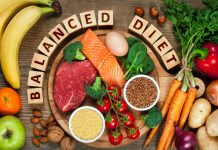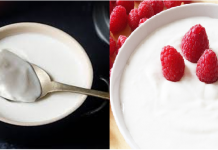 What nutrients can directly help the heart? Apart from an active lifestyle and a balanced diet that includes food from all food groups, the following have been proven to be of special significance as far as heart health is concerned.
What nutrients can directly help the heart? Apart from an active lifestyle and a balanced diet that includes food from all food groups, the following have been proven to be of special significance as far as heart health is concerned.
Antioxidants
Antioxidants act in a number of ways to protect the heart from damage. They enhance production of nitric oxide, which gives a non-stick coating to arteries thereby preventing clogging and blood clot formation. Besides, antioxidants prevent oxidation process of LDL, the bad cholesterol, which causes clots. Antioxidant rich foods include carrots, tomatoes, capsicum, green and black tea, dark coloured fruits and vegetables.
Fiber
These are of two types, soluble and insoluble. Soluble fiber is one that is soluble in water, and can get digested by the enzymes in the intestine. Soluble fiber, especially “beta glucan” found in foods like whole grain oats and barley, can lower levels of blood glucose and cholesterol in the body. The other type of fiber that is insoluble in water is present in the outer skin and seeds of fruits, vegetables and whole grains. These do not get digested in the intestine, but are fermented by the good bacteria present in the gut. The fermentation process yields the many health benefits, including maintenance of gut health, by increasing the number of good bacteria, prevention of colon cancer, removal of cholesterol and regulation of blood sugar.
Magnesium
Scientists have found that the levels of magnesium in blood impact the risk of cardiovascular disease. Magnesium is known to have soothing effect and has anti arrhythmic properties. It has been found to also have hypotensive (blood pressure lowering) effect in clinical trials. Foods rich in magnesium include dark green leafy vegetables, nuts, seeds and dark chocolate with high cocoa content. Famous nutritionists and experts recommend eating dark chocolate with less sugar to get more magnesium.
Potassium
Potassium is an electrolyte that helps muscles contract, and improves strength of blood vessels. Potassium reduces blood pressure and reduces salt sensitivity. Some people experience a spike in blood pressure when they eat salty foods. Increasing potassium rich foods may help reduce this sensitivity. However, there must be more potassium when compared to sodium in the diet to obtain this benefit. Potassium rich foods include pulses, dark green leafy vegetables, citrus fruits, nuts and milk.
B vitamins
In patients who have cardiovascular disease, a substance called “homocysteine” is elevated in the blood. Homocysteine is directly associated with increased risk of heart disease. Many studies have shown that B vitamins, especially vitamins B 6, B12 and folate reduce the levels of homocysteine and overall have a protective effect on heart. Vitamin B 12 is found in yeast, liver, and meat, and small amounts in milk. Other B vitamins are found in whole grain cereals and pulses, nuts, seeds and eggs.
Omega 3 fatty acids
A recent clinical trial using omega 3 fatty acids, a type of unsaturated fats found strong evidence to support using it to prevent heart disease. More than 11000 patients were studied in the trial, called the GISSI – Preventzione trial. Patients who had already had a prior heart attack received omega 3 fatty acid supplementation for 42 months, and had reduced risk of mortality at the end of the study period. Omega 3 fats are found in oily fish, including tuna, mackerel and salmon. Among vegetarian sources, flax seeds, walnuts, almonds, kiwi fruit are good sources. Canola oil provides good amount of omega 3.
 Plant sterols and stanols
Plant sterols and stanols
Plant stanols are naturally occurring substances in many plants. These are known to reduce levels of “bad” cholesterol (LDL) naturally. Meaningful reductions of LDL were found with 2 grams of plant stanols per day. Benecol, which has become popular in many countries and recently launched in India is an alternative to margarine, which helps lower cholesterol. Out in the west, many foods including fruit juices, spreads, and drinks are fortified with natural stanols, but the concept is yet to gain popularity here in India. Till then, it might be a great idea to increase consumption of fresh fruits, vegetables and whole grains.
Visit Gympik.com for more information on heart healthy foods.


 Traqade
Traqade






























